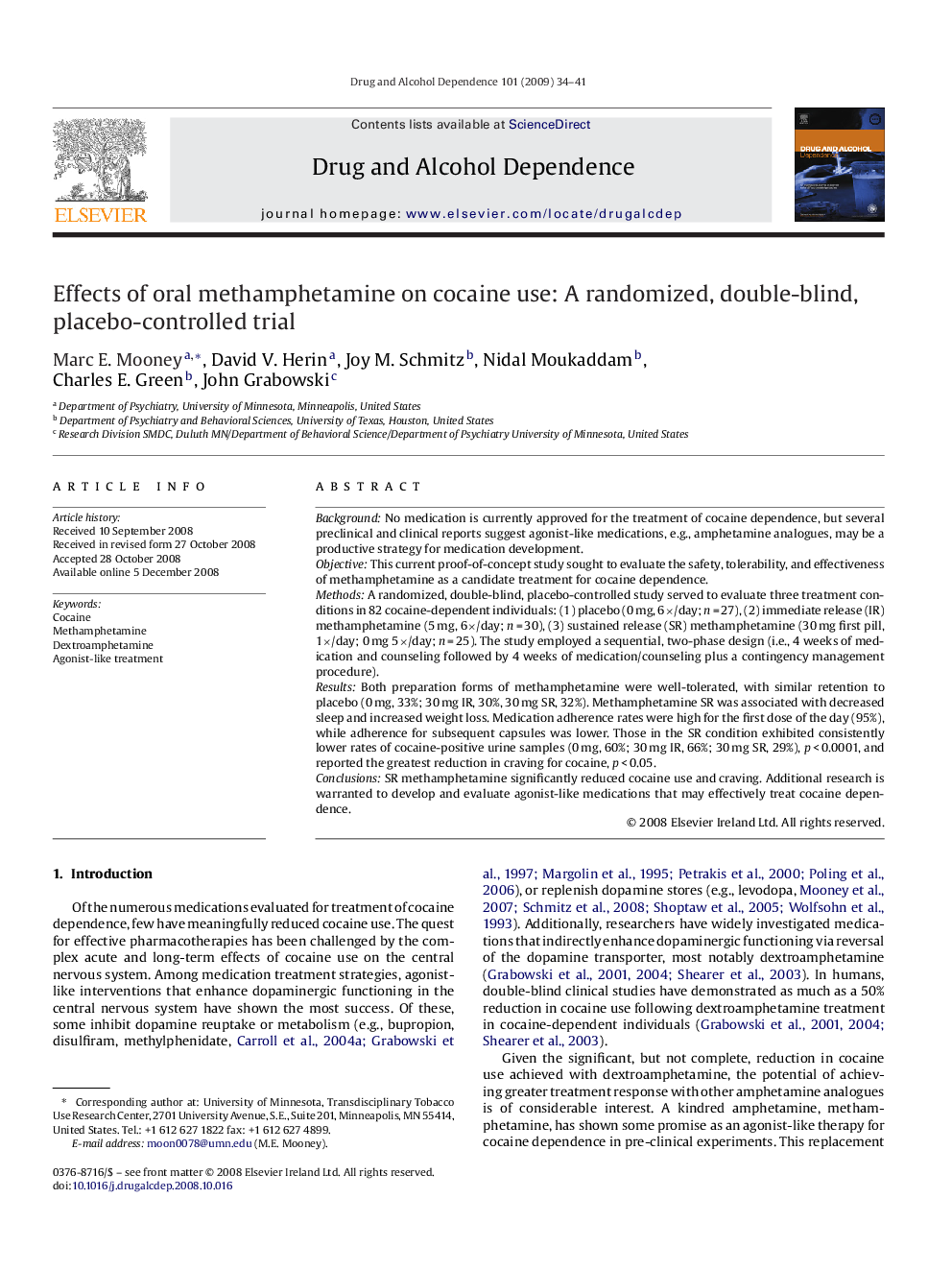| Article ID | Journal | Published Year | Pages | File Type |
|---|---|---|---|---|
| 1071370 | Drug and Alcohol Dependence | 2009 | 8 Pages |
BackgroundNo medication is currently approved for the treatment of cocaine dependence, but several preclinical and clinical reports suggest agonist-like medications, e.g., amphetamine analogues, may be a productive strategy for medication development.ObjectiveThis current proof-of-concept study sought to evaluate the safety, tolerability, and effectiveness of methamphetamine as a candidate treatment for cocaine dependence.MethodsA randomized, double-blind, placebo-controlled study served to evaluate three treatment conditions in 82 cocaine-dependent individuals: (1) placebo (0 mg, 6×/day; n = 27), (2) immediate release (IR) methamphetamine (5 mg, 6×/day; n = 30), (3) sustained release (SR) methamphetamine (30 mg first pill, 1×/day; 0 mg 5×/day; n = 25). The study employed a sequential, two-phase design (i.e., 4 weeks of medication and counseling followed by 4 weeks of medication/counseling plus a contingency management procedure).ResultsBoth preparation forms of methamphetamine were well-tolerated, with similar retention to placebo (0 mg, 33%; 30 mg IR, 30%, 30 mg SR, 32%). Methamphetamine SR was associated with decreased sleep and increased weight loss. Medication adherence rates were high for the first dose of the day (95%), while adherence for subsequent capsules was lower. Those in the SR condition exhibited consistently lower rates of cocaine-positive urine samples (0 mg, 60%; 30 mg IR, 66%; 30 mg SR, 29%), p < 0.0001, and reported the greatest reduction in craving for cocaine, p < 0.05.ConclusionsSR methamphetamine significantly reduced cocaine use and craving. Additional research is warranted to develop and evaluate agonist-like medications that may effectively treat cocaine dependence.
